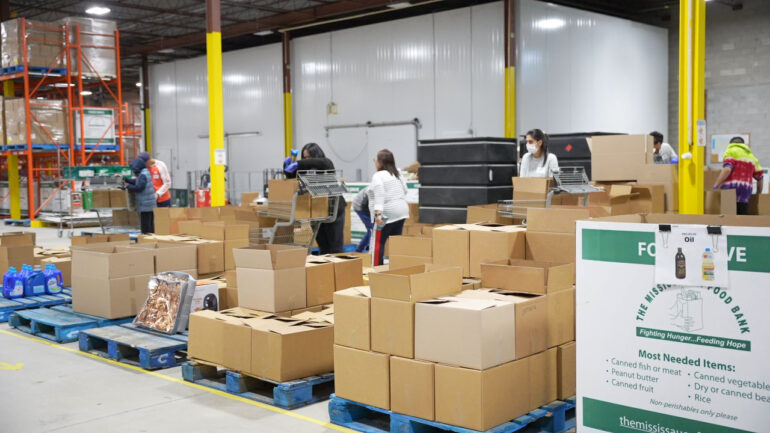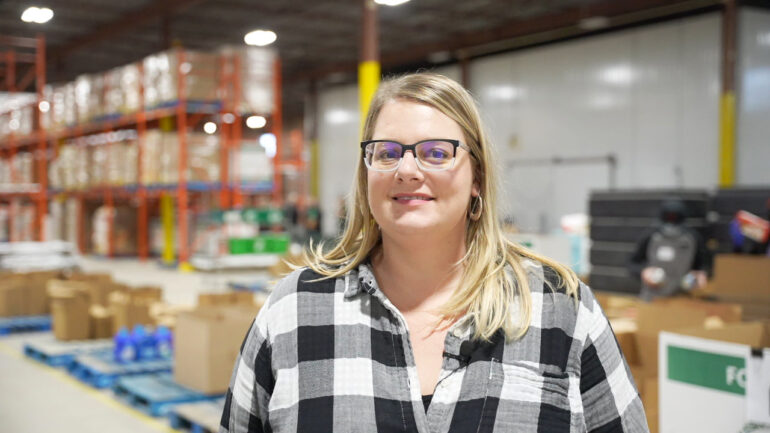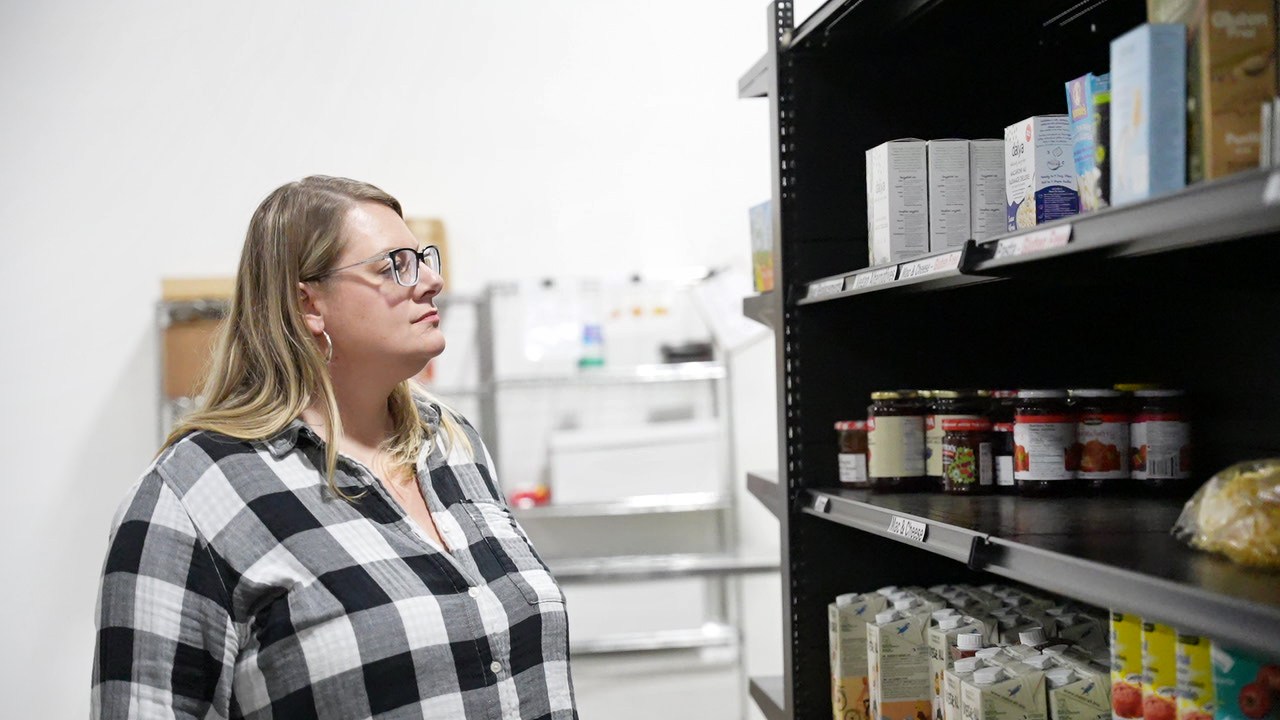The federal and provincial governments are being asked to take action as food bank demand across Toronto and the GTA reached record-high numbers.
Meghan Nicholls, chief executive officer at The Mississauga Food Bank, raised concerns over the growing number of users in her community.
“It’s the highest month on record in the history of the organization,” she said about their client visits in March. “There isn’t an unlimited amount of money in the community. There isn’t an unlimited amount of volunteers.”
The organization’s annual spending has more than doubled since pre-pandemic times. They will need to spend up to $7 million to be able to serve the number of people expected to use the Mississauga Food Bank in 2023. Nicholls said they currently serve on average 16,000 people each month.
The Daily Bread Food Bank’s CEO Neil Hetherington announced at a news conference on Tuesday that food banks across Toronto are “in a crisis” and called on the provincial government to take action by providing similar support given during the pandemic.
An annual Food Banks Canada report found rising housing costs, low provincial assistance rates, and food costs were the main reasons people were forced to turn to food banks last year.
Nicholls criticized the Canadian government for allowing demands to reach record-breaking levels and pointed to the lack of affordable housing, and stagnant wages for low-income jobs as areas that need to be addressed.
“Technically, charities like us, the food banks, are subsidizing what the government is supposed to be taking care of. People who are vulnerable, struggling in our community,” she said.

People from the Mississauga community visiting the food bank on April 5. Photo credit: Andre La Rosa-Rodriguez
“The government continues to make policy choices that mandate poverty and that means that people have to rely on charitable organizations like ours just to meet their basic needs,” Nicholls said.
Pierre Desrochers, an associate professor specializing in food policy at the University of Toronto, noted that helping food banks keep up with demand can only a temporary solution.
“They cannot be a way of life or a way to feed a large number of people in the long-run,” he said. “Even if you have food banks in the short run, you don’t build a prosperous society or a long-term sustainable food system by investing in food banks.”
He stressed long-term solutions start with the government looking at the factors that are impacting food prices which are currently at a 40-year-high. Desrochers highlighted that it will require taking supply chain, labour, and energy costs into consideration.
“Everybody is hurting. It’s not just food,” he said. “The economic fundamentals need to be addressed. That’s the only way to bring food prices down.”
Janet Music, a research coordinator of the Agri-Food Analytics Lab at Dalhousie University, echoed Desrochers and said that there needs to be more focus on aspects of the economy that are affecting food prices in a “ripple effect.”
A 2023 Food Price report by Dalhousie University released this week, projected food prices will increase by seven per cent and listed labour shortages, transportation costs, and trade disruptions as some of the factors affecting costs.
“Very serious conversations need to be had at the national level about what we feel is important,” she said. “But at least we’re talking about it. I don’t think I could have said that a few years ago.
However, Music noted rising food prices is not only affecting people who visit food banks, but also those willing to donate.
“As food prices rise, people are donating less food to food banks. So we see food banks kind of stuck in this crunch where they have so many more users because of food prices, with a lot less donations,” she said.

Meghan Nicholls, chief executive officer of the Mississauga Food Bank, stands in the organization's new location with double the space for supplies in their efforts to meet rising demands. Photo credit: Andre La Rosa-Rodriguez
Nicholls said the Mississauga Food Bank, which recently been able to move to a new larger location capable of storing twice as much food because of funds raised through donations, is concerned the growing demand will eventually outbalance what they are receiving through charities.
“Those are the kind of challenges that food banks are coming up against. What happens if we get to the point where 50 per cent of the city lives in poverty. How would we cope then,” she said.
“People’s ability to eat shouldn’t rely on somebody else’s desire to be generous. It’s a human right to have access to food,” Nicholls said.

